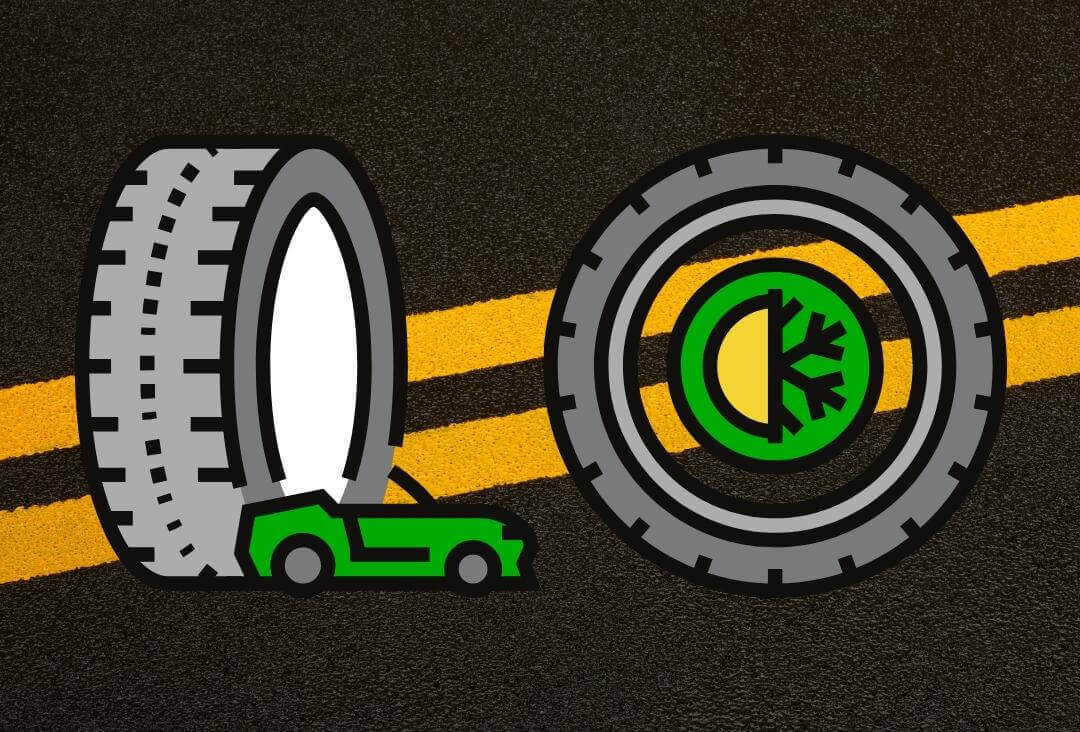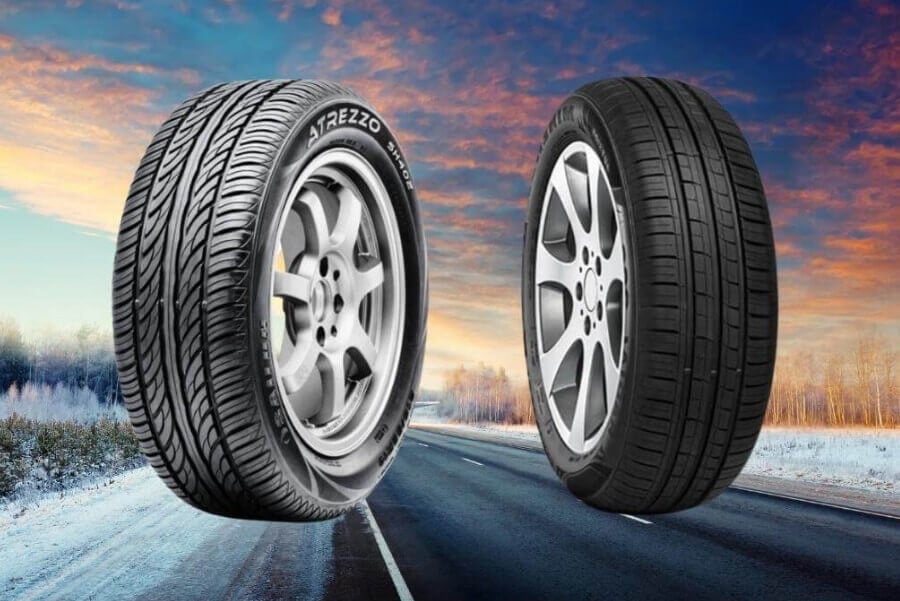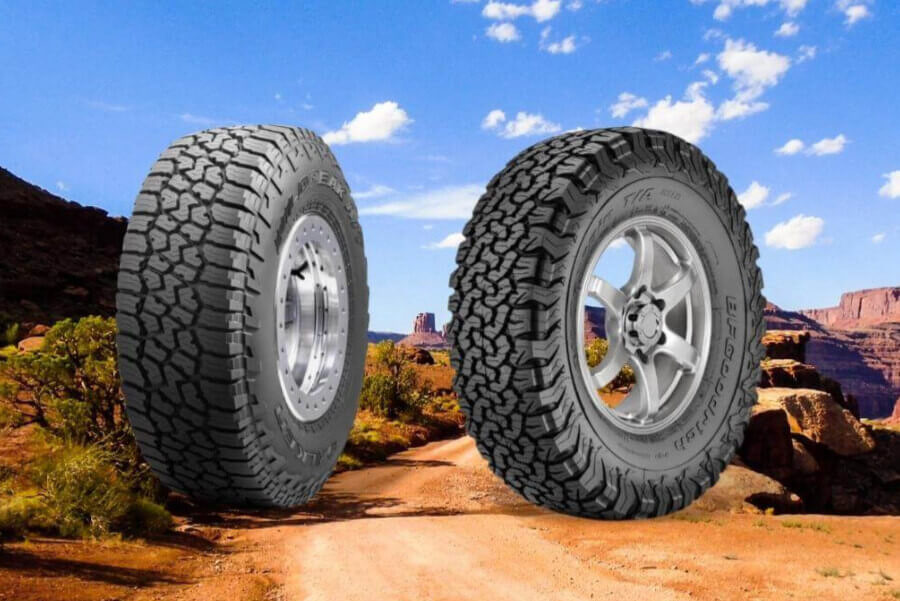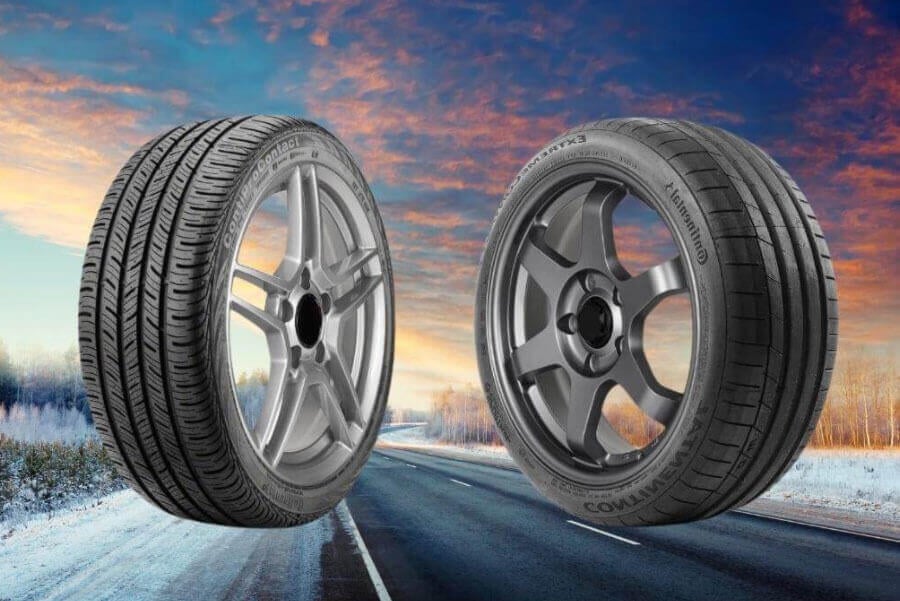You're getting ready for spring and as you look for your next summer tires, you ask yourself the question: should I equip my car with high performance tires vs. regular tires? What exactly do these terms mean and what distinctions can we make between the tire categories?
Blackcircles Canada is here to help you make the right choice and offers you a comparison between performance tires and regular, or all-season, tires. For a little help in making the right tire selection, be sure to check out our Spring Buying Guide !
All-season tires
All-season tires are primarily manufactured with versatility in mind. They provide good traction on both wet and dry surfaces, but are also capable of handling a little snow or ice (we mean a little). Depending on where you live, spring and fall can sometimes surprise with early or late snow. With an all-season tire, you are ready for anything!
However, they often don't specialize in one type of driving or one specific class of car. They go everywhere and are often designed for longevity, but they are not experts in snow or dry road conditions.
In the vast majority of cases, new vehicles that are purchased are equipped with all-season tires. And in the majority of cases, drivers are fully satisfied with this type of tire.
High performance tires
High performance tires are true to their name: they are adapted to performance driving. That is, these tires go along with your desire for rapid acceleration, hard braking and controlled cornering.
If you drive a sporty car, you'll probably want to look into this type of tire. They tend to have a stiffer rubber compound, denser blocks and a shallower tread. These and other characteristics increase the tire's contact with the road for exemplary handling.


The main differences
This last point is the one that leads to one of the main differences between performance tires vs. regular tires. While all-season tires can handle colder temperatures and a small amount of snow and ice, forget about performance tires in these conditions.
Below 7°C, performance tires just don't work anymore: they become dangerous on the road. What's more, the cold damages them and makes them more fragile: expect a reduced life span if you expose them to lower temperatures.
Short periods below 0°C will be tolerated by the all-season tire, as long as it remains moderate. In addition, these tires can run on fine snow or a little ice, unlike performance tires. However, although they are called all-season tires, note that they are generally not suitable for Canadian winters, withstanding only moderate cold and snow. For this, you should opt for winter-rated tires instead.
However, traction on dry or wet roads during the summer season is far superior with a performance tire. Grip is optimal, especially in tight turns, and acceleration and braking distances are reduced. The tread is also designed for increased resistance to hydroplaning, not limiting performance driving.
Traction is often strong with all-season tires as well, but you shouldn't expect the same performance or responsiveness.
With increased performance, however, comes a disadvantage: a noisier ride. While regular tires seek to reduce noise and provide a comfortable ride, don't look for these qualities in a performance tire.
What about tread life? Of course, this depends on your driving habits, among other things. On the one hand, performance driving tends to damage tires more quickly.
On the other hand, all-season tires are often designed for longer life. Warranties don't lie: while high performance tires are often covered up to a maximum of about 80,000 km, coverage varies between 50,000 and 130,000 km for regular tires.
Thus, high performance tires vs. regular tires each have their strengths: on the one hand, performance and fun; on the other, versatility and comfort above all.
Do I need performance tires for my vehicle ?
Regardless of your car, you never really need performance tires. However, if you have a sporty car or a coupe for example, you may want to make the most of its capabilities. In that case, performance tires may be a good choice for you. Of course, if you're a fan of driving on the race track, the question doesn't even arise!
By choosing a performance tire, you can experience the thrill you were hoping for when you bought your sports car. However, if your daily use does not lend itself to it, the regular tire may be preferable.
Indeed, the latter offers, among other things, reduced noise and increased ride comfort. What's more, its versatility will help you avoid unpleasant surprises. The choice of a tire category depends largely on the region where you live; in Canada, it is not uncommon to be surprised by the cold or even the snow!

These factors should be kept in mind when choosing tires. Performance tires are true summer tires, meaning they only handle summer weather. Most of the time, what we call "summer tires" is actually the same as all-season tires for many people, although there is a distinction to be made between these two types of tires.
If you don't think you'll really benefit from performance tires, it's best not to go for this option: in addition to the disadvantages presented, they are not only more expensive, but their lifespan is reduced.
Whatever your car and driving habits, blackcircles has a wide variety of tires at great prices. Shop online, chat online with our tire experts and learn more !







